Flame Painter is a procedural painting application by Peter Blaškovič available on http://www.escapemotions.com/. It's remarkably versatile, but a lot of experimentation is necessary to figure out what it is capable of, so I'm posting a series of tutorials on how to get specific effects.
Amorphous jellies
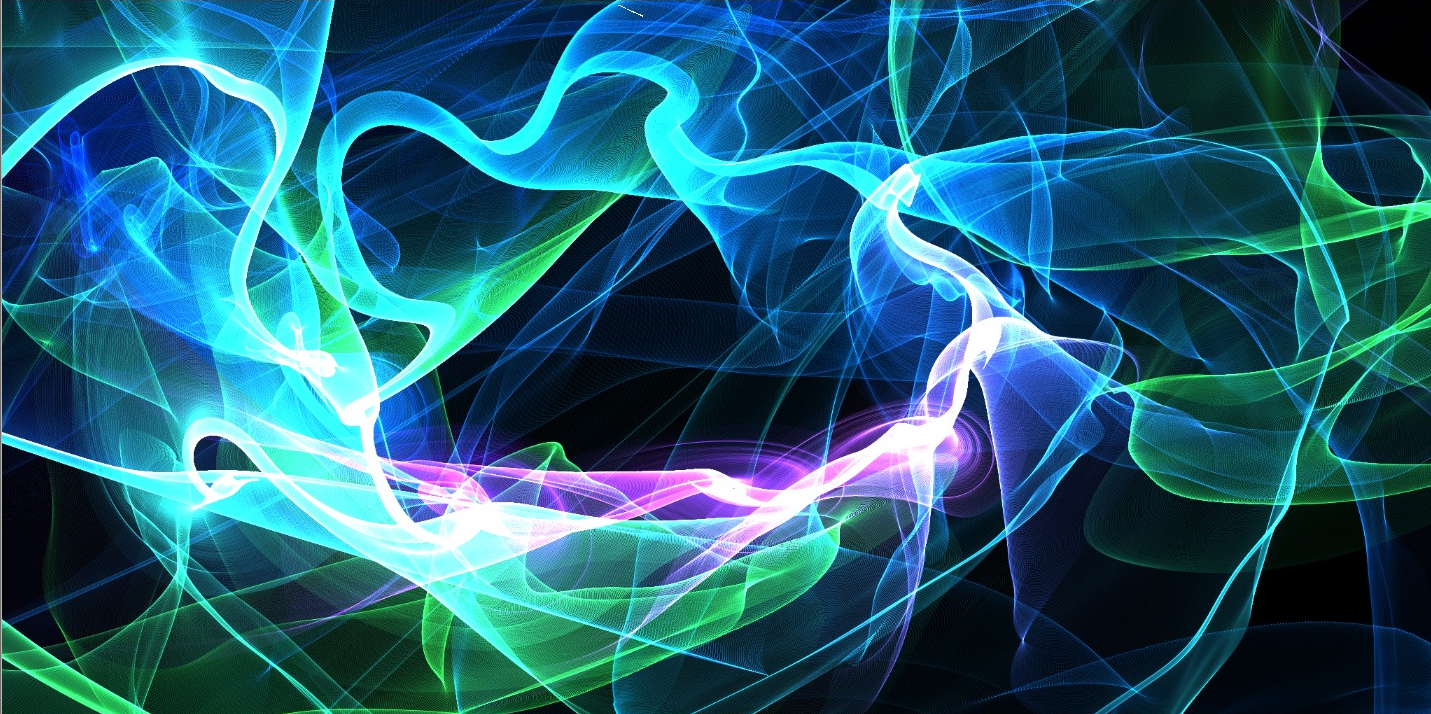
Ads by Google
Posted by ellen at February 18, 2011 08:37 PM
This phosphorescent gauzy sea-jelly was uses created a gradient using colors that recall the sea: deep blues, greens and violets. The black background is similar to the images from recent ocean documentaries of benthic depths. The Lighten setting is similar to the Lighten or Screen settings in Photoshop, where the more color you add, the lighter it gets. The Ribbon Brush at these settings creates a snake-like undulating edge that coils and uncoils, criscrossing back and forth on itself, but always slowly rotating around the mouse-location. Move the mouse in curly-cues around a large circle to get the shapes shown here.
Comb Jellies |
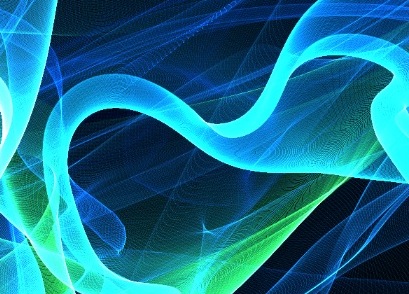 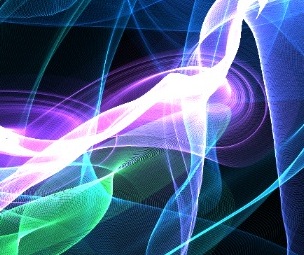 |
|---|
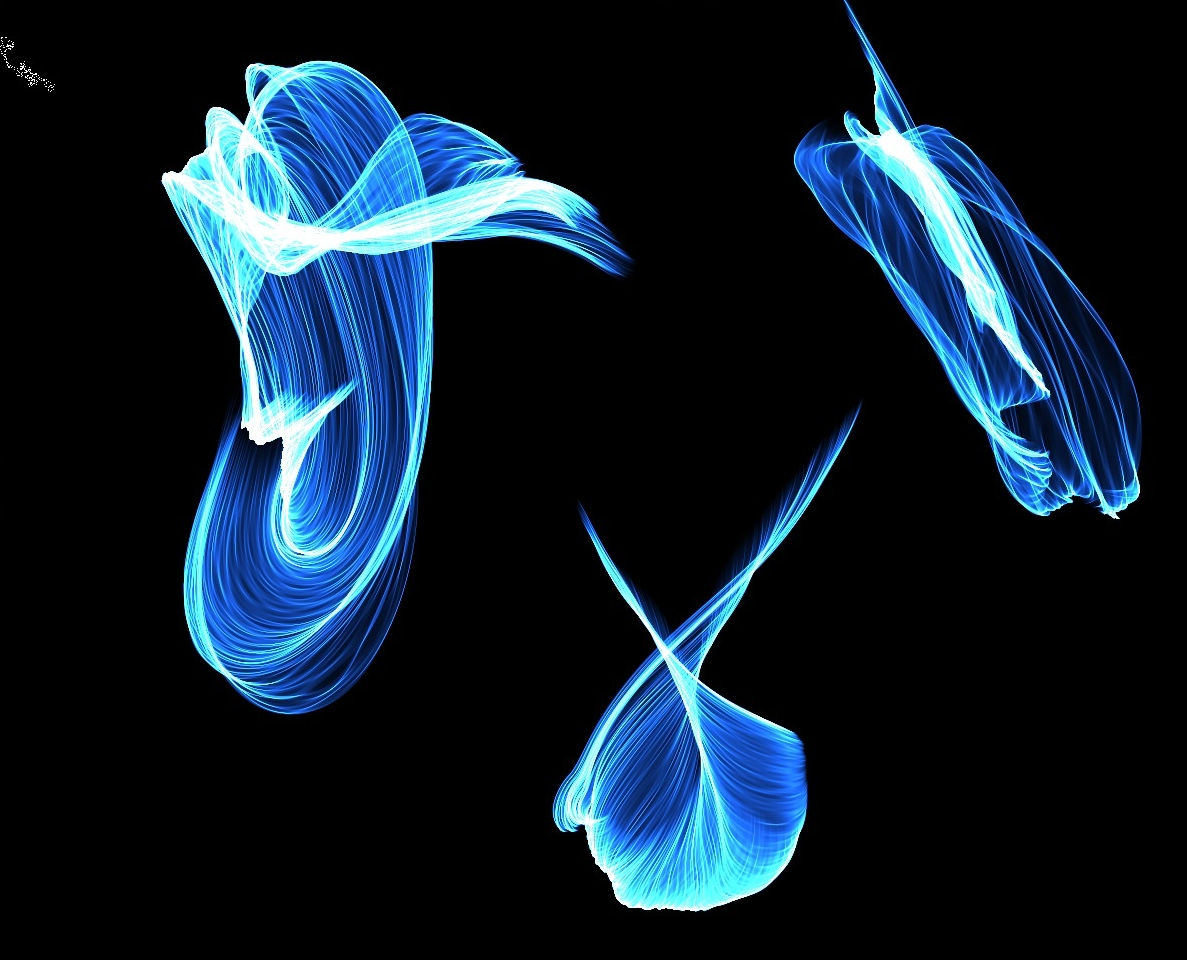
These ctenophore-like creatures were created using the Flame brush setting which produces a slowly coiling, steadily contracting wavy edge, which is very similar to gauze or fluid, but is too orderly for a flame or smoke. The brush responds to speed, getting larger the faster you move it, then slowly winding down to a point.
 |
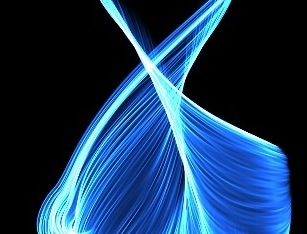 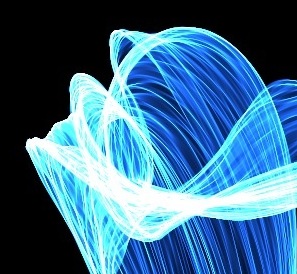 |
|---|
Deepwater Jellyfish
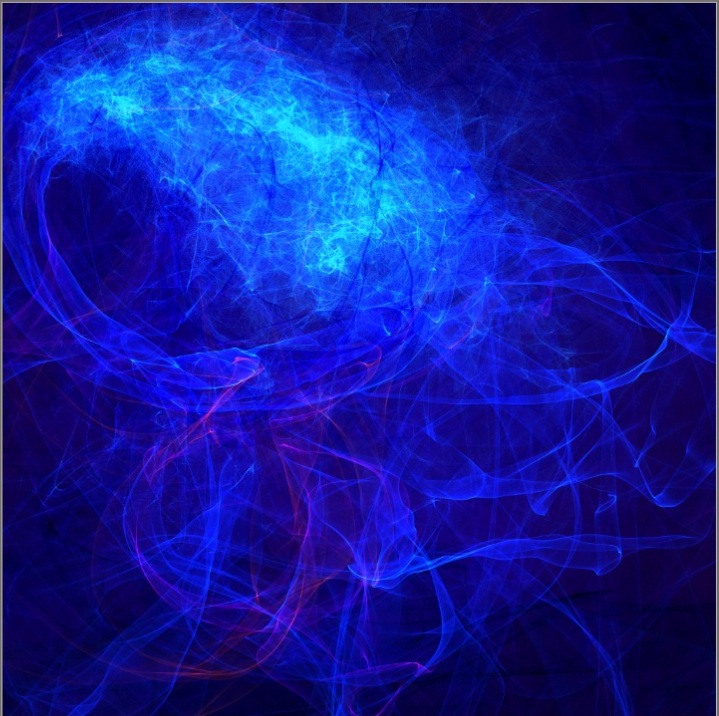
This large sea-jelly was created with the Follow brush, which is given some movement with a small Focus setting, and variation that it usually lacks, using a small Chaos setting. Many passes were required to build up the whole jellyfish.
 |
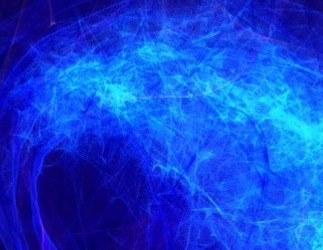 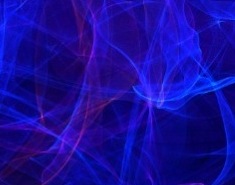 |
|---|
- See more examples of some of the effects you can get with Flame Painter: My Flame Painter collection on Flickr
- Try Flame Painter for free online! http://www.escapemotions.com/ <
- Explore more Flame Painter tutorials
- Flame Painter group on Deviantart.com
Ads by Google
Guess more tutorials on Flame Painter just wasn't meant to be. Bookmarked the page anyway.
Ron